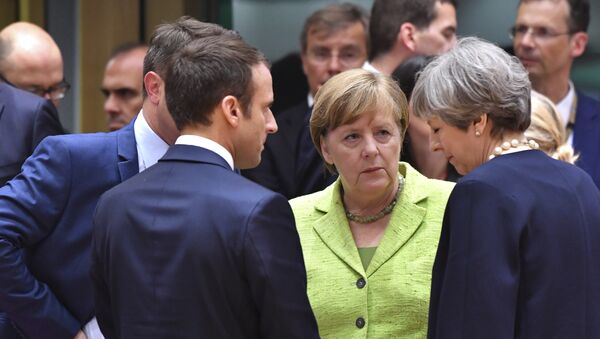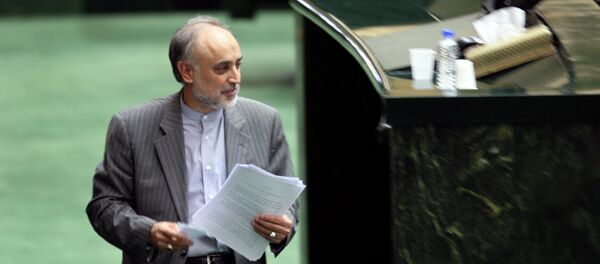"The chancellor also spoke with the president [Macron] and the prime minister [May] on trade relations with the United States. They agreed that the United States should not take trade-linked measures against the European Union and that, otherwise, the European Union should be ready to defend its interests within the framework of the multilateral trading system," the statement read.
Merkel spoke to Macron on Saturday and held talks with May earlier on Sunday.
READ MORE: US Attempts to Dissuade Iran's Partners From Cooperation Violate JCPOA — Tehran
Iran Nuclear Deal
Apart from the relation with the US, the three leaders have also jointly reiterated their calls for Washington to remain in the Iran nuclear deal, while also expressing readiness for a wider format of talks on the issue, the German Cabinet said.
"The three [leaders] once again unanimously supported the idea of the United States remaining in the agreement on Iran's nuclear program. At the same time, they reaffirmed their readiness to develop additional agreements in a broader format with all parties involved on the duration of nuclear restrictions and on other topics, primarily the Iranian ballistic missile program and its regional role," the statement read.
The sides also agreed on the importance of the Iran nuclear deal as the best way of neutralising the "threat of a nuclear-armed Iran," though pointed out that there were some elements that the deal does not cover and namely "ballistic missiles, what happens when the deal expires, and Iran’s destabilising regional activity."
US President Donald Trump has repeatedly criticized the nuclear agreement, formally known as the Joint Comprehensive Plan of Action (JCPOA), which put restrictions on Tehran’s nuclear research in exchange for sanctions relief.
In January, Trump asked the US Congress and European Union allies to address "flaws" in the agreement. The United States is expected to announce whether it will extend US sanctions waivers for Iran on May 12.





